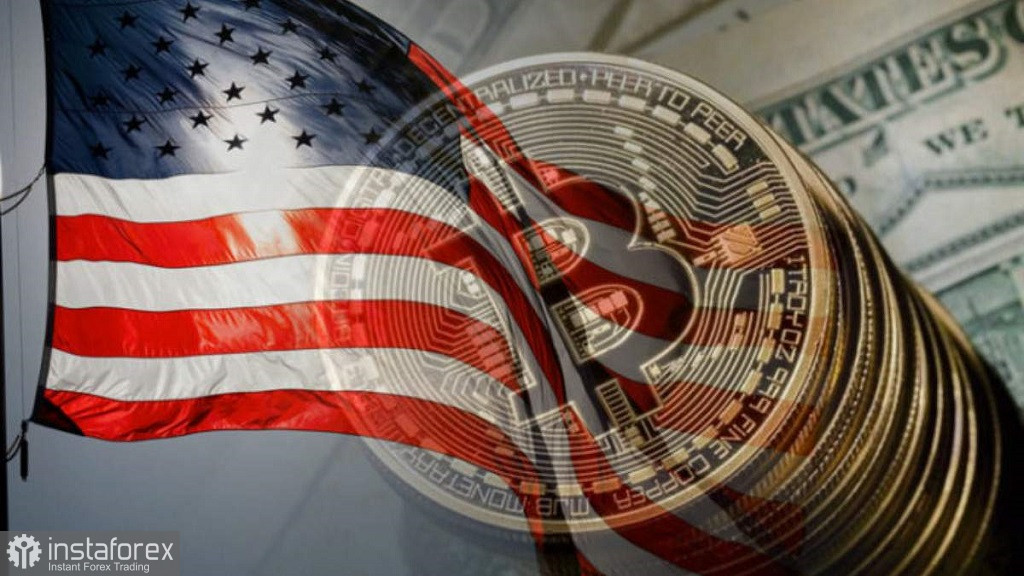While bitcoin does not show significant changes in price or technical picture, and the scenario of the triple bottom reversal model remains relevant, I propose to continue discussing the decree of US President Joe Biden.
Judging by the dynamics of cryptocurrencies, the market underestimated the signing of this document. But industry participants consider it not only worthy of attention, but also favorable for the market.
The decree on ensuring responsible development of digital assets was expected for several months. And when it was signed, its provisions were received with approval.
I suggest we look at what cryptocurrency experts and participants in this field are focusing on.
Innovative technology gets support
Jerry Brito, director of the cryptocurrency protection group Coin Center, tweeted that the decree is "another confirmation that when serious officials soberly look at cryptocurrency, it is important to recognize it as an innovation that the United States will want to support."
Republican Senator Cynthia Lummis of Wyoming was among the supporting lawmakers. She stated: "It's nice to see the Biden administration's growing interest in digital assets."
The Decree on ensuring responsible development of Digital Assets recognizes their place in the national and global economy, noting that the market capitalization of non-state digital assets increased from $14 billion in November 2016 to $3 trillion five years later.
Important aspects of the Biden decree
The Executive Order on Ensuring Responsible Development of Digital Assets sets out policy goals related to consumer protection, financial stability, illegal financing and national security, US leadership, services for the poor and responsible development.
However, it does not specify any regulatory actions. Rather, it describes an interagency process involving 16 high-ranking officials, including several cabinet ministers, and potentially independent regulatory bodies.
Their first responsibilities will be to prepare a series of carefully thought-out reports with various additions and appendices, which should be submitted at intervals of 90 days to a year from the date of publication of the document.
Assistant to the President for National Security Affairs Jake Sullivan and Assistant to the President for Economic Policy Brian Deese will coordinate the interagency process.
There are many questions - there are few answers
But there are also difficulties, in particular, in the issue of managing this project. Alexandra Barrage, a partner at Davis Wright Tremaine LLP, notes that the interagency process is "evidence of the fact that digital assets affect so many problems that there is not a single agency that could solve it."
After the reporting is completed, the implementation of the administration's policy objectives will be the next task. Nevertheless, the final impact of the Decree can only be guessed.
Experts note that most of the industry requires compliance with the rules. The decree marks the end of the perception of cryptocurrency as the Wild West.
Peter Hardy, one of the heads of the anti-money laundering group at Ballard Spahr LLP, notes that consistent regulation without gaps "is certainly an ideal goal, especially given the constant and rapid changes in technology, which means that the rules must constantly change, just to keep up."
Who are the regulators?
Finally, as noted yesterday, it remains unclear who will be authorized to regulate the crypto industry. The Decree names seven regulatory bodies, and some of them are already fighting for this role.
For example, last year the Office of the Comptroller of the Currency (OCC) and the Consumer Financial Protection Bureau (CFPB) disagreed over the chartering of fintech companies. And the director of the Commodity Futures Trading Commission (CFTC) insisted on strengthening enforcement powers regarding cryptocurrencies in the Senate last month.
The Securities and Exchange Commission (SEC) was accused of abuse of office. This agency is almost not mentioned in the Decree, and it is not assigned a significant role here.
Due to the lack of clarity in the issues listed above, most likely, the market did not attach importance to the signing of the Decree. But when (or if) clear directives from the authorities and regulatory developments appear after a while, they can become an impetus for the market.

 English
English 
 Русский
Русский Bahasa Indonesia
Bahasa Indonesia Bahasa Malay
Bahasa Malay ไทย
ไทย Español
Español Deutsch
Deutsch Български
Български Français
Français Tiếng Việt
Tiếng Việt 中文
中文 বাংলা
বাংলা हिन्दी
हिन्दी Čeština
Čeština Українська
Українська Română
Română

